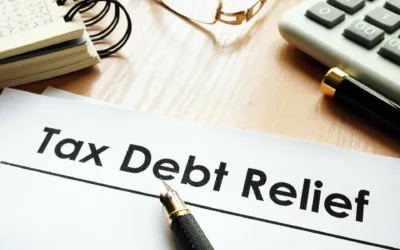Debt Information
Can I eliminate tax debt with bankruptcy?
Most people are shocked to hear that, while most taxes cannot be discharged through bankruptcy, some can. The Oklahoma City bankruptcy lawyers at Debt Relief OK can review your financial situation to see if your Debt can be eliminated.
You can wipe out some tax debt by filing Chapter 7 bankruptcy only if all of the following conditions are met:
- The debt is federal or state income tax debt. Other taxes, such as fraud penalties or payroll taxes, cannot be discharged through bankruptcy. In other words, the debt needs to be a regular tax payment that you owed either the State of Oklahomaor the IRS.
- You did not willfully evade paying taxes or file a fraudulent return. Bankruptcy will help eliminate debts that were incurred by fraud; your actions need to have been lawful.
- Your debit must be least three years old. The original tax return must have been due at least three years prior to filing for bankruptcy. So if you were to file for bankruptcy in July 2021, for instance, this would apply to your 2017 taxes that were due April 15, 2018.
- You actually filed a tax return at least two years before filing for bankruptcy. To eliminate a tax debt, a return for that debt must have been filed. Generally, if extensions expired and you filed late, you did not file a true return and may not be able to eliminate the tax debt.
The tax debt must have been assessed by the IRS at least 240 days before you file bankruptcy. If the IRS suspended collection efforts due to a compromise or previous filing, this deadline may be extended.
Tax Liens and Bankruptcy
Tax debts and tax liens are not the same things. Tax debt is money that you owe either the State of Oklahoma or the IRS. A tax lien is a legal judgment secured against your property to satisfy the tax debt. If you qualify for Chapter 7 bankruptcy, and meet all of the above criteria, unfortunately bankruptcy will not eliminate a tax lien.
Your obligation to pay off the debt will be discharged, but the tax lien will survive the bankruptcy. However, the IRS will no longer be able to go after your income or bank account.
If a tax lien was filed before you filed for bankruptcy, the lien will remain on your property. If you ever want to sell your property, you will have to pay off the lien before you can do so.
The Oklahoma City attorneys of Debt Relief OK are here to help answer your bankruptcy questions. Give us a call at (405) 213-1919 today.
Determine the amount of nonexempt property you own
Chapter 7 bankruptcy may not be the best option for you, depending on your income and assets. If you own a lot of property, the trustee in bankruptcy may sell some of it to satisfy your creditors. If you file Chapter 13 bankruptcy, you will keep all of your assets, but you will have to pay creditors an amount equivalent to the total worth of your nonexempt assets. Make sure to check your state’s bankruptcy exemption laws before deciding whether bankruptcy is in your best interests.
Decide whether you should stop making payments
Once you’ve started the bankruptcy procedure, you should generally stop paying credit card payments. If you haven’t decided if bankruptcy is suitable for you, keep making payments on your credit card to avoid creditors harassing you and causing more damage to your credit.
As always, the bankruptcy attorneys of Debt Relief OK are here to help with any and all of your bankruptcy concerns. Give us a call today.


